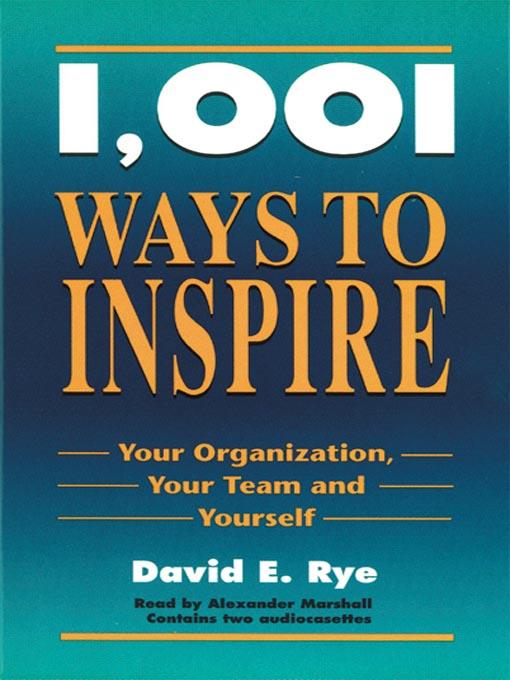
1001 Ways to Inspire
Your Organization, Your Team and Yourself
کتاب های مرتبط
- اطلاعات
- نقد و بررسی
- دیدگاه کاربران
نقد و بررسی

What's titled as a way to inspire people at work is actually a series of prescriptions for getting what you want from someone based on his personality type. The premise is that people have different emotional and behavioral styles and it pays to know what type you're dealing with, as well as your own type, when trying to influence them. But the oversimplification risked by this approach is made worse in this program by recommendations that many will find trite and manipulative. And like many social science approaches to management, the program tries to teach too many skills from too many angles for any of it to be effective. The author may have some accumulated wisdom, but the content of this program and the imperious reading don't allow it to come through. T.W. (c) AudioFile 2001, Portland, Maine

April 15, 1999
Narrated by Alexander Marshall, Ryes (Starting Up, Prentice-Hall, 1997) book joins a long list of also-rans attempting to reinterpret the classic material on personality types by Peter Myers and Isabel Briggs Myers. Rye simplifies the types and renames them the power player, team player, party player, and diplomatic player. The diagnostic test (unseen) to help determine ones own personality type also repeats numerous other attempts to apply this research. In this case, the emphasis is on professional and organizational situations, also already done. Understanding yourself, your boss, co-workers, and employees by superimposing the famous Myers-Briggs Inventory of Personality Types (MBTI), while useful, has already been successfully applied by numerous other writers, such as Otto Kroeger and Janet M. Thuesen (Type Talk at Work, Dell, 1989), and David Keirsey (Please Understand Me, 1978). Ryes insights to improvement and motivation would be useful in public libraries not already holding any of the many predecessors in this saturated genre.Dale Farris, Groves, TX

























دیدگاه کاربران